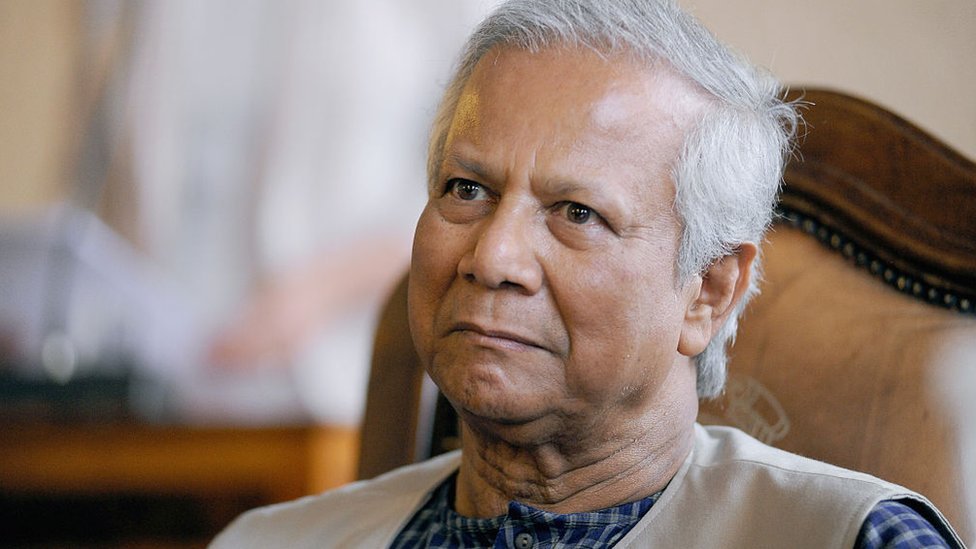Bangladeshi People View the Government as Their Enemy — Interim Government Chief Adviser Dr. Muhammad Yunus
One year after Prime Minister Sheikh Hasina was ousted from power, public trust in the government has yet to be restored, said Nobel laureate economist and head of Bangladesh’s interim government, Dr. Muhammad Yunus. In an interview with The Guardian, Yunus stated that the people still view the government as an enemy — and overcoming this perception will require deep political and administrative reforms.
Bangladeshi People View the Government as Their Enemy — Interim Government Chief Adviser Dr. Muhammad Yunus
Bangladeshi People View the Government as Their Enemy — Interim Government Chief Adviser Dr. Muhammad Yunus
Dhaka, Bangladesh | June 16, 2025
One year after Prime Minister Sheikh Hasina was ousted from power, public trust in the government has yet to be restored, said Nobel laureate economist and head of Bangladesh’s interim government, Dr. Muhammad Yunus. In an interview with The Guardian, Yunus stated that the people still view the government as an enemy — and overcoming this perception will require deep political and administrative reforms.
“People see the government as a lifelong enemy — one they must struggle against just to survive,” Yunus said.
War Against Corruption and a Vision for a “New Bangladesh”
Dr. Yunus emphasized that corruption has become embedded in the machinery of the state.
“From getting a passport to securing a business license — nothing happens without bribes.”
He believes eradicating corruption at every level, from rural villages to the capital, is the only way to build a New Bangladesh.
Yunus assumed office in July 2024 following a mass student-led uprising that led to Sheikh Hasina’s resignation.
“We started our journey with a collapsed economy and a broken administration,” he said. “We didn’t even know if we’d be able to pay the electricity bills.”
Reform Initiatives and the July Charter
In January this year, the interim government formed several reform commissions aimed at:
-
Overhauling the electoral process
-
Combating corruption
-
Drafting a roadmap for a welfare-oriented state
Dr. Yunus hopes to sign a historic agreement titled the “July Charter” with political parties before the one-year anniversary of the uprising, aiming to implement reforms prior to the next election.
“This is no small matter — there’s no time for gradual change. We must alter our very foundations.”
Political Resistance and BNP’s Objections
The country’s most popular political party, the BNP, continues to demand early elections and has rejected the proposed two-term limit for prime ministers. However, Yunus remains hopeful, noting that all parties are now participating in dialogue — a rare occurrence in Bangladesh’s political history.
Expansion of Microcredit and Social Business
Yunus also plans to expand his well-known microcredit model. He envisions creating a dedicated microfinance bank, offering poor people easier access to loans than traditional banking institutions.
“People think this is about taking money from the poor — but it’s not... there’s nothing wrong with it. So there’s nothing that needs fixing.”
Promise to Step Down
In the interview, Yunus made it clear that he does not intend to stay in power after the elections scheduled for April. His goal, he said, is solely to create an environment for a free, fair, and reform-driven electoral process.
“Previously, only the Awami League criticized me. Now everyone does. That’s normal when you’re in this position — you just have to endure it.”










